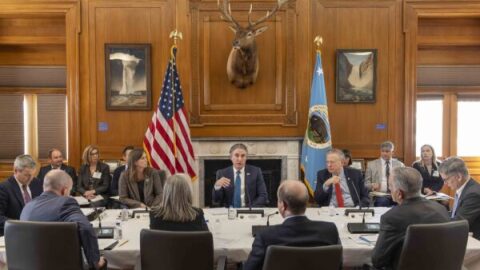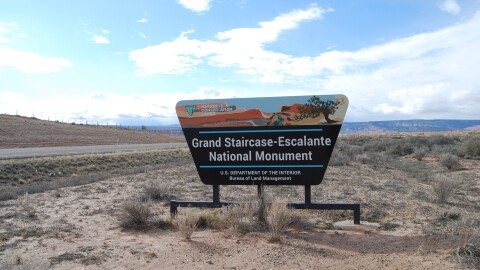-
As Basin state governors met in Washington D.C., to try and break the impasse, Colorado’s Attorney General said the state has a deep bench of lawyers to contend with multiple water disputes.
-
As the storied independent film festival prepares to leave its longtime home, attendees and film industry insiders look back.
-
Federal auditors say that Congress could use an obscure law called the Congressional Review Act to throw out the Utah monument's resource management plan, which sets which activities are or aren't allowed on the 1.9 million acres.
-
Wildfire has numerous consequences for the West and, with many statehouses now in session, lawmakers across the region are trying to respond. Now there's a new tool to track reform efforts.
-
Among Mountain West states rates vary drastically
-
Cold temperatures have settled over much of the Mountain West this winter, but precipitation has been harder to come by, leaving large parts of the region unusually dry for late January.
-
When the conditions are right, land managers sometimes allow naturally ignited fires to burn. And new research shows that there can be significant ecological benefits when they do so.
-
President Trump's selection of Pearce has provoked a backlash from many environmental groups and local Western officials, who point to his record of supporting public land sales and the oil and gas industry.
-
Lawyers with a libertarian legal group allege a Wyoming city violated her constitutional rights when denying an animal permit.
-
The late guitarist and songwriter attended Fountain Valley School in Colorado Springs in the early sixties — before he was kicked out and co-founded the band.
-
The National Park Service started free entry days in 2009. The selection and number of days have varied, but Martin Luther King Jr. Day has been on the list ever since 2011.
-
The Department of the Interior (DOI) has formally announced the establishment of the U.S. Wildland Fire Service (USWFS), a development that came the same week that the U.S. Congress declined to fund it.
-
The Interior Department’s secretarial order directs federal land managers to find places with unnecessary barriers to hunting and fishing and expand public access to outdoor recreation.
-
High number of cases in county along 3 state lines















